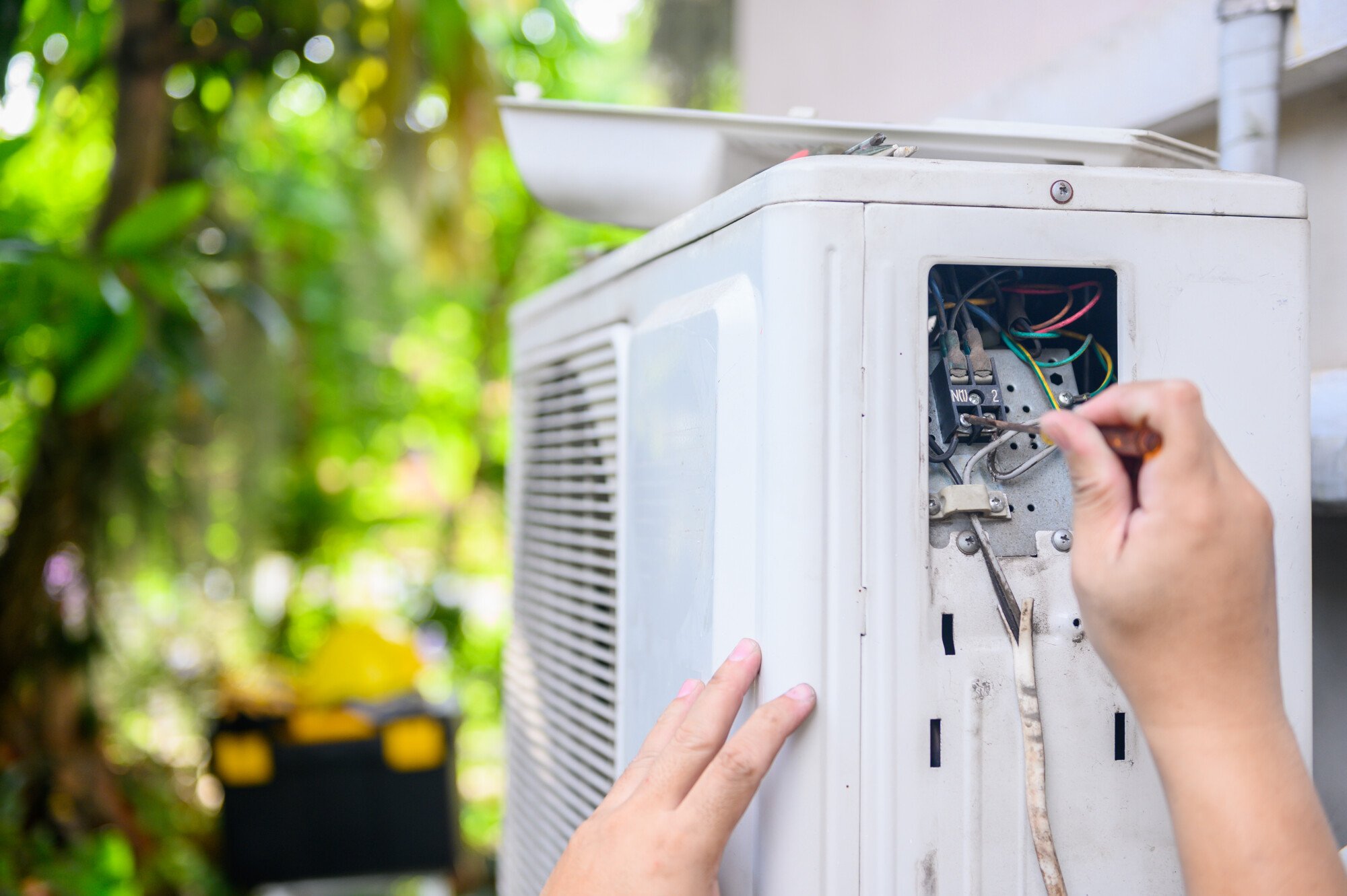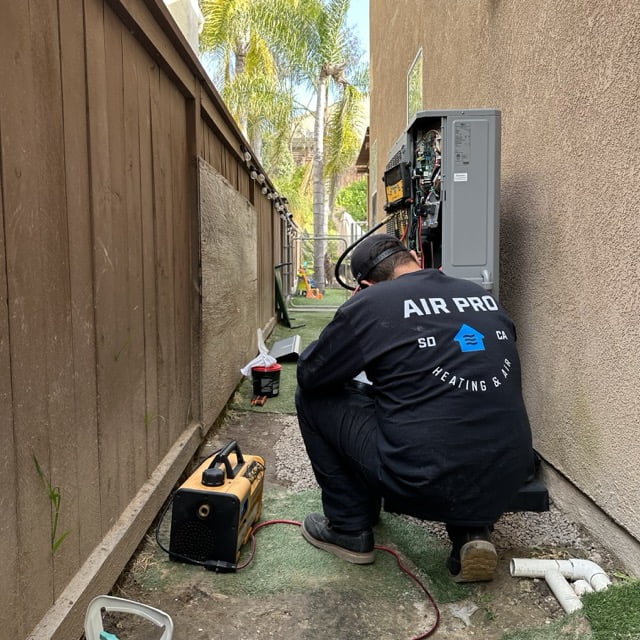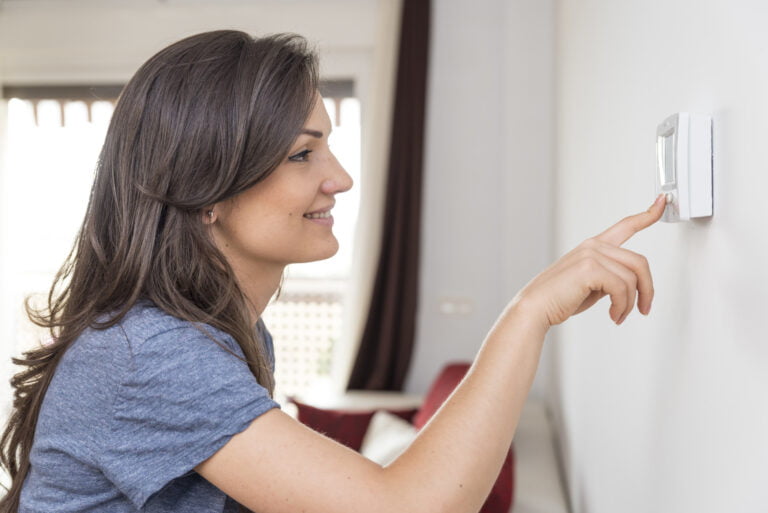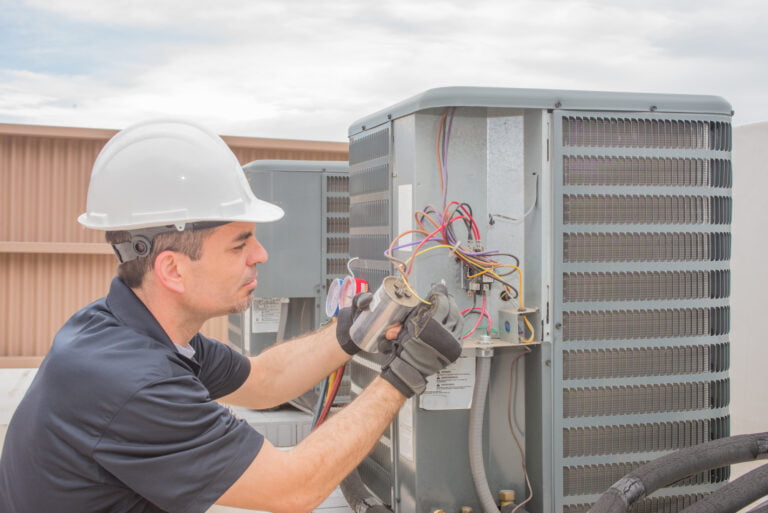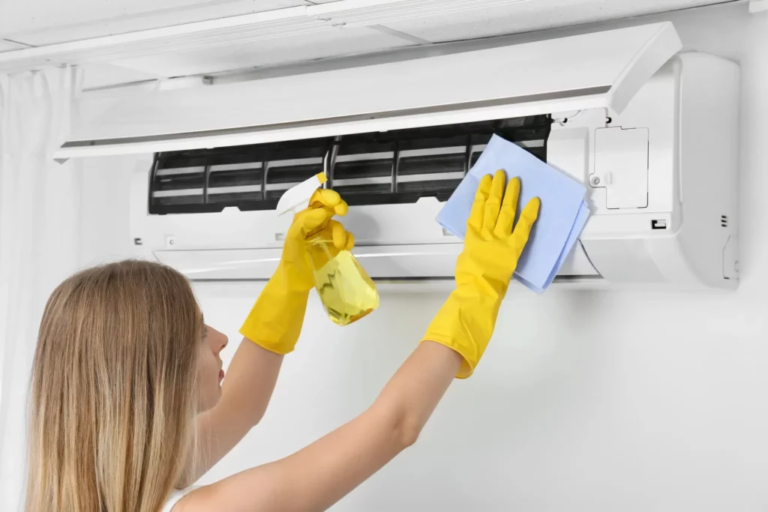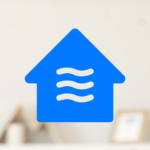An estimated 88% of US households use air conditioning, which is a significant jump from the reported 77% of households with AC in 2001.
As summer approaches and temperatures climb, many people reach for the thermostat to keep their homes cool. However, an AC that suddenly cuts out can fill anyone with dread. No one wants to suffer through sweltering summer days and nights.
Thankfully, there are steps you can take to address common AC issues, so you can keep your home comfortable and prevent issues in the future. Keep reading to learn more about AC repair, including how to keep up with maintenance and when to call in the pros.
How to Troubleshoot an AC Problem
Before you call for AC repair, it helps to have an idea of what’s causing the problem. You don’t have to know exactly what’s wrong with your system, but a list of malfunctions should help.
You should never attempt to fix the problem yourself, as an AC system is full of delicate parts, and making a mistake can cause those AC repair costs to go up. However, you can do some troubleshooting to identify an issue.
Here are some common AC issues that can cause the air conditioning to cut out or fail to work.
Check the Circuit Breaker
If your air conditioning was working fine before it suddenly cut out, and you can’t get it to turn back on, there are several possible causes.
First, if you have an AC unit, make sure that it’s correctly plugged in. If there’s a problem with the electrical connection, it can obviously create a disruption. Sometimes, the plug can get partially or completely dislodged, so start with the outlet.
The problem can also be caused by a tripped circuit breaker. Check your circuit breaker and make sure all the switches are in the correct position.
If you continue to trip your circuit breaker, you have a bigger problem. You may have insufficient refrigerant or a dirty air filter, which causes the system works harder. If you ignore the problem, your system may break down.
Dirty condenser coils or broken parts can also cause the AC to cut out and trip the breaker.
Another possible cause is faulty wiring or aging components. If your AC keeps turning off and tripping the breaker, call a heating and cooling repair company immediately to inspect your system.
Inspect the Air Filter
Although you should leave most repairs to a professional, homeowners can perform regular AC maintenance, like changing the air filter.
Dirty air filters will cause your air conditioning system to work overtime, yet it can feel as if your AC isn’t working at all. Air filters are usually located in return ducts or inside the air handler.
How often you should replace the air filter varies based on manufacturer recommendations, how often you use the system, the type of filter you have, whether you have allergies, and whether you have pets.
Generally, most professionals recommend changing the filter every 45-90 days for maximum efficiency. A high-quality air filter can last up to 90 days.
Individuals with allergies may want to change the air filter more often, as dust, pollen, and debris in the air can cause allergic reactions. Pets can also pose a problem, as pet hair and dander can clog the filter.
You may want to experiment to see what works best for you. If you have questions about finding the best filter for your system, contact the manufacturer or ask an AC pro what they recommend.
If your filter looks dirty or it’s been a while since you replaced it, a simple replacement can sometimes resolve the issue.
Check Your Thermostat
Sometimes an air conditioner turns on and off again repeatedly or starts short cycling. This can cause internal damage, affecting the compressor.
A dirty air filter or frozen evaporator coils can cause this issue, but it can also be a problem with the thermostat. A thermostat that’s in direct sunlight or too close to heat-generating appliances can affect its performance, resulting in the system turning on or off at incorrect times.
Thermostats can also malfunction. If your thermostat temperature doesn’t match the room temperature, forgets programmed settings, or doesn’t respond to temperature adjustments, you need to repair or replace it.
A broken thermostat can cause your AC to turn on and run non-stop or turn off inappropriately.
Look for Signs of Frozen Evaporator Coils
An evaporator coil absorbs warm air from inside your home and works with the condenser coil to exchange heat and produce the cool air you rely on.
This is a crucial part of your air conditioning system, and problems with it can cause your system to malfunction. Dirty evaporator coils cause the system to work extra hard, which decreases the efficiency of your unit and can cause short cycling.
Ice buildup on the coils is a sign that there’s an issue with the refrigerant or airflow. If you suspect an issue with the evaporator coils, call an AC repair tech to inspect your system.
Check for Leaks
Refrigerant leaks are another common problem that can cause AC issues. Leaks can start due to damage, factory defects, or improper installation, and they can lead to bigger problems if left undiagnosed.
Refrigerant is a toxic substance, often referred to as Freon. It’s tasteless and mostly odorless, and exposure can cause health problems such as difficulty breathing and fluid buildup in the lungs.
Mild exposure is only somewhat harmful, but it’s still not a problem you should take lightly. If you suspect a refrigerant leak, never try to diagnose or repair the issue on your own. Contact a heating and cooling company immediately.
Leaks can cause low refrigerant levels, which may result in short-cycling problems and the AC cutting out.
HVAC professionals use specialized equipment to detect leaks. They might use soap bubbles, UV dye, or electronic leak detectors to identify the location of a leak so they can repair it.
Selecting the Right Size Air Conditioner
If your AC keeps cutting out, it may be due to an improperly sized air conditioner. An air conditioner that’s too small for a home can cause problems, but selecting a system that’s too big for your needs can result in issues as well. Bigger isn’t always better!
An oversized AC system will cycle on and off more frequently, resulting in uneven cooling and higher energy bills. A unit that’s too small will work too hard to keep the home comfortable.
Here’s how to find the perfect size residential AC system.
Measure the Square Footage of Your Home
To make sure that you have a unit suited to your needs, start by measuring your home’s square footage. You can do this by measuring the length and width of square or rectangular rooms, hallways, etc.
Of course, not every room or space in the home is a perfect rectangle. If you have architectural drawings or building plans, this is the best way to determine square footage. Remember that you don’t need to calculate the square footage of non-usable spaces and areas that won’t be heated or cooled, like basements and garages.
You can also consult a professional appraiser to get a better estimate, though that can cost anywhere from $300 to $1,500 or so, depending on the size of your home or condo.
Calculate the BTUs
The British Thermal Unit (BTU) is a measurement of heat energy, and it’s how we measure heating and cooling power. A furnace is rated based on the thermal heat it produces per hour (BTU/h), while air conditioners are measured on how much thermal heat it removes every hour.
You can determine the best size AC for your residence based on the square footage of your home and by selecting an air conditioner that’s rated high enough to cool the space efficiently.
Consider Other Factors That Impact Cooling Efficiency
Of course, the size of your home is only one factor that impacts how efficiently your AC unit will work. Rooms that get a lot of sunlight or aren’t well-shaded tend to require more cooling power. It can also take more to cool down a kitchen due to heat-generating appliances.
Other factors to consider are ceiling height, insulation, and climate zone. Ultimately, it’s best to set up a consultation with a heating and cooling company. They can perform an evaluation of your home and determine if you need a new AC to keep your house cool and comfortable.
Call the Pros for AC Repair
If you notice your air conditioning keeps cutting out, the issue may be one of the problems we mentioned here. Of course, the best way to diagnose a malfunctioning cooling system is to have a professional take a look.
If you need AC repair or replacement services here in San Diego County, you can rely on us here at Air Pro Heating and Air Conditioning. Request an estimate today to book an in-home consultation.

